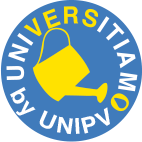The project
The concept of disability has radically changed during the last 20 years, rising from the conviction that the “disable” was a person with physical, sensory or mental impairments to the new consciousness that the condition of disability is the result of the interactions between the person and the environment in which he/she moves, works, studies, has fun, etc. This concept is defined by the UN Convention on the Rights of Persons with Disabilities in 2006, implemented in Italy by the Law n.18 in 2009. The Convention also emphasizes the importance of the “right to education” (Article 24) and that no one is excluded from the “free primary education”.
Starting from these considerations and the knowledge gained in nearly 10 years of research (both basic and applied), we want to develop a tool, synthesized in an APP for smartphones and tablets, with a double validity: on one hand to support the users’ fruition (for children, parents, teachers and school staff), on the other hand to objectively assess the accessibility and the usability levels of the schools (including the urban surroundings) and design the removal (or at least the overcoming) of the architectural and sensorial barriers.
In addition, the tool will be extremely useful to plan the interventions on the existing school buildings, where the problems related to the accessibility are often solved in an extemporaneous and occasional way, as a mere compliance to a legislation request.
The goal is to provide designers and managers of the primary schools a simple, practical and objective tool, with an immediate interface, through which assess the critical issues and identify a schedule of possible solutions to choose the most suitable one, in respect to the specific building, in case of both existing schools and ex-novo design. Thanks to this research we will be able in the future to identify and implement architectural solutions for the improvement of the accessibility based on a conscious and multidisciplinary approach.
The funds raised through the crowdfunding campaign aim at the realization of the different phases of the research, summarized as follows:
- definition of the assessment tool and accessibility measurement: we will have to define an objective, simple, practical and dynamic assessment tool, able to compare the data collected not only with the current regulations but also with the specific needs of users. The assessment will cover both the building and the surrounding urban space. In particular, it will be necessary to study a breakdown with easily measurable parameters, which can be applied without variation to the different case studies, in order to achieve objective and comparable results. The tool can also be used for monitoring the state of preservation of the specific architectural elements;
- APP definition for users and designers: we will identify the best software for this type of investigation and the predisposition of an APP to support the data collection during the survey phase. The APP will be both for the users (children, parents, teachers and school staff), reporting events, services, bus stops and timetables of the public transport and providing maps of the most accessible paths, in the school building and in the urban areas, and for designers, facilitating the design and planning of solutions to improve the accessibility. It can also interface with the Municipality services to report any construction site or event that could predict a change of the mobility systems, especially the slow one.
- tool verification and testing through survey campaign: once defined the assessment tool we will test it through a survey campaign with direct measurements, with the aim to collect information on the primary school buildings. It is an activity that at this stage must be carried out by qualified people, with adequate training on accessibility issues, school construction and design solutions in terms of the overcoming of architectural and sensorial barriers. In this way we can get a simple and really efficient tool;
- definition of the action priorities grid: the last phase of the research is to define a grid of priorities to overcome architectural and sensory barriers based on the results obtained in the previous phases. This step of the research is extremely important and innovative. It needs specific skills and should be conducted with a multidisciplinary approach and the aware of the importance of the inclusive design and, in the case of historical buildings, the conservation and valorisation of the cultural and historical heritage;
- dissemination and exportability: the research wants also to promote the importance of the accessible and inclusive design. For this reason we will invest resources in sponsoring the activities and for the involvement of people with disabilities during the survey phases. In addition, we will guarantee the dissemination of the achieved results through an e-book and the communication of the methodology adopted, also exportable to other contexts. With this approach we want to contribute to disseminate the culture of accessibility, not only to designers and experts, but also to all citizens.
LINK
http://updatepavia.wix.com/accessibility
http://www.comune.pv.it/site/home/canali-tematici/scuola-e-istruzione/scuole/articolo58.html
https://www.google.com/maps/d/viewer?hl=it&msa=0&z=13&ie=UTF8&om=1&mid=zYeoAdqhRmb4.ka9sR2Jhii4A
Video
Media Gallery
Rewards
DONATION € 1000,00
The name of donor (possibly the logo in case of companies or associations) will be included into the presentations at national and international conferences and on the website of the project
DONATION € 2000,00
The name of the donor (possibly the logo in case of companies or associations) will be included into the home screen of the APP
DONATION € 5000,00
The name of the donor (possibly the logo in case of companies or associations) will be included into a banner on the bottom of the APP screen and into a plate adjacent to the possible new architectural solution in the future (e.g. ramp, lift, tactile map, etc.)
Team
Alessandro Greco
Prof. | FounderAlessandro Greco
Prof. | Founder
Professor in Technical Architecture at the University of Pavia. Complete CV
Valentina Giacometti
Dott.Valentina Giacometti
Dott.Elena Romano
Dott.Elena Romano
Dott.Matteo Locatelli
Dott.Matteo Locatelli
Dott.Backers
-
Claudia e Valter Piazza e Valter Piazza








